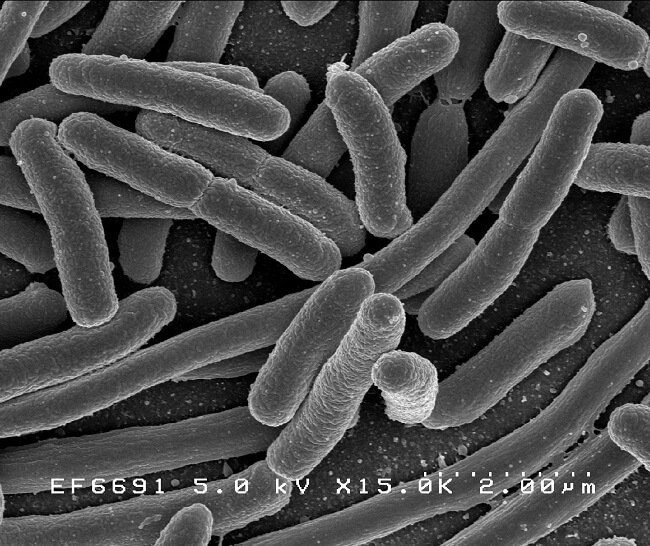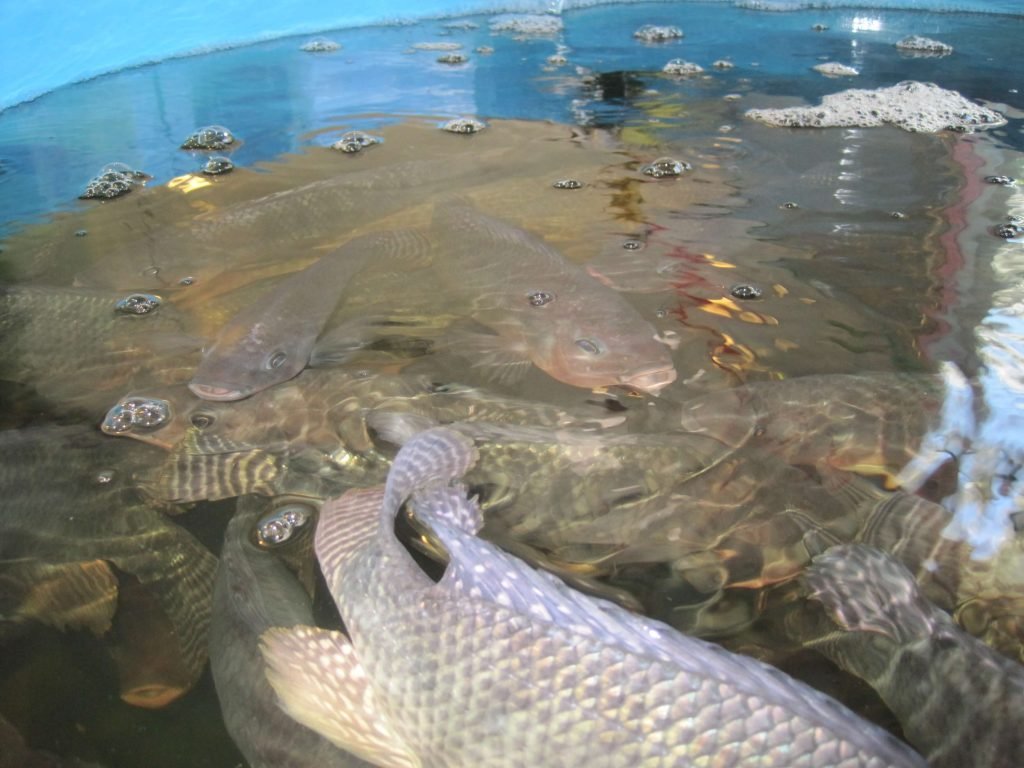Escherichia Coli is a type of bacteria. What may surprise you is that it naturally lives in your intestine.
This bacteria is actually an essential part of your digestive system and not normally an issue. In fact, the same bacteria is present in many warm-blooded animals and serves the same purpose as in humans, to help the digestive system.
However, there are strains of this bacteria which are not as helpful, these are the ones that can cause severe illness. They are generally known as Shiga-toxin-producing E.coli and, unsurprisingly, produce a toxin called Shiga.

This is the one that can make you seriously ill and is responsible for the majority of E.coli cases.
If you love traveling you may have already met E.coli, it’s commonly found when traveling to less developed countries and results in diarrhea.
That’s why it’s important to be aware of the bacteria, know how to check for its presence, and what to do if you discover it.
As E.coli is present in most animals there is a risk of contracting it if the meat is not cooked properly. It can also be passed to other foods, such as lettuce, through cross-contamination.
Another way in which E.coli can end up in fresh produce is if the water supply is contaminated, that’s the issue that faces aquaponics gardeners, after all, you’re not likely to be cutting meat and cross-contaminating your plants while they’re growing.
Can I get E. Coli from my Aquaponics Fish?

The first thing to note is that fish are cold-blooded. This means that their digestive systems work differently to warm-blooded animals. In short, a fish does not have the E.coli bacteria in their gut, which means you can’t catch E.coli directly from them.
Of course, that doesn’t mean they can’t contract E.coli if the water is contaminated. Equally, there is a range of parasites that can affect fish that you should be aware of. The worst of these are roundworm; flatworm, and tapeworm.
This shouldn’t be an issue for your aquaponics system as fish are only infected with these parasites when they feed on a host that already has a parasite. As you’ll be feeding them via your fish food that shouldn’t be an issue.
Other Sources of E. Coli in Aquaponics
But, that doesn’t mean E.coli is completely out of the picture. Warm-blooded animals carry E. coli in their guts, if the waste from these warm-blooded animals ends up in your aquaponics system then the fish can absorb it into their skin.
This shouldn’t be an issue if you’re going to eat any of your fish as you’ll be cooking them first, and cooking kills the E.coli bacteria. Just don’t eat them raw.
However, the E.coli that’s been introduced via animal waste can also be absorbed by the plants you’re growing. These plants will then have the bacteria in their tissue cells. The biggest issue with this is that many of the plants you grow can be eaten without being cooked.
If E.coli has got onto or in the tissue of these plants then eating them will give you the infection. Of course the risk of this is small as you’re unlikely to add animal waste to your aquaponics system, there isn’t really any need.
But, what if the waste gets in their accidentally, via a pet, or a pest that has got into your tank or grow bed. A warm-blooded pest will have the E.coli bacteria and if it dies in your tank, it could contaminate everything.
Some people ask if they can use the waste of ducks, rabbits, or chickens in their aquaponics system. This is a big no because they can carry E. Coli and infect you and everybody that eats the produce of the aquaponics system.
How to check for E. Coli in your Aquaponics System
It may seem unlikely but testing periodically for E.coli is a good idea, it will help to reassure you that everything is well. In fact, it’s a particularly good idea to do it just before you start harvesting.
Testing your aquaponics system for E.coli can be done quite simply. You’ll need to extract a sample of your water, taken from the fish tank. If you have a floating raft system you can also take a sample from the raft section of your system.

It certainly doesn’t do any harm to test before you harvest, it’s you and your family/friends that eat the produce which will feel ill.
How to get rid of E. Coli in your Aquaponics System
There are actually two issues when you discover that E. coli is present in your aquaponics system. Firstly, you’ll want to know how the E.coli got into the system, secondly, you’ll need to know if the bacteria is just in the water or in the fish as well.
Dealing with E.coli is difficult as the only way to ensure it is eradicated is to kill your fish and replace the water, as well as your crops.
Of course, E.coli won’t actually affect the fish and is unlikely to leach back into the water and contaminate your plants a second time. As there is no way of removing E.coli from the plants, without cooking them, you’ll probably need to destroy the crop and replace the water.
While you can replace the fish this will usually be an unnecessary step.
Of course, replacing the water is not a simple solution. If you’re keeping the fish you’ll need to replace 20-30% of the water at a time to ensure the fish are not shocked by the new water.
Perhaps the best option, if you discover E.coli is to shut your system down, clean everything completely and start again.
The good news is that while this will help you to be prepared for an E.coli issue, it’s very rare that you’ll actually be faced with one.
Final Thoughts
Any aquaponics system needs to be monitored and tested regularly. This ensures you are aware of and can deal with any unexpected issue. Just because something is unlikely doesn’t mean it can’t happen, that’s why it’s so important to understand the effects of contracting E.coli and to be able to test for it.
Most importantly, if you discover it’s present you need to be able to remove it from your system and restore confidence in the food you’re going to eat.

Nick loves building, managing and giving others advice on aquaponics. He created this website to do just that. He is the author of Aquaponics for beginners. If you got a question contact him here or read more on the about page here.
